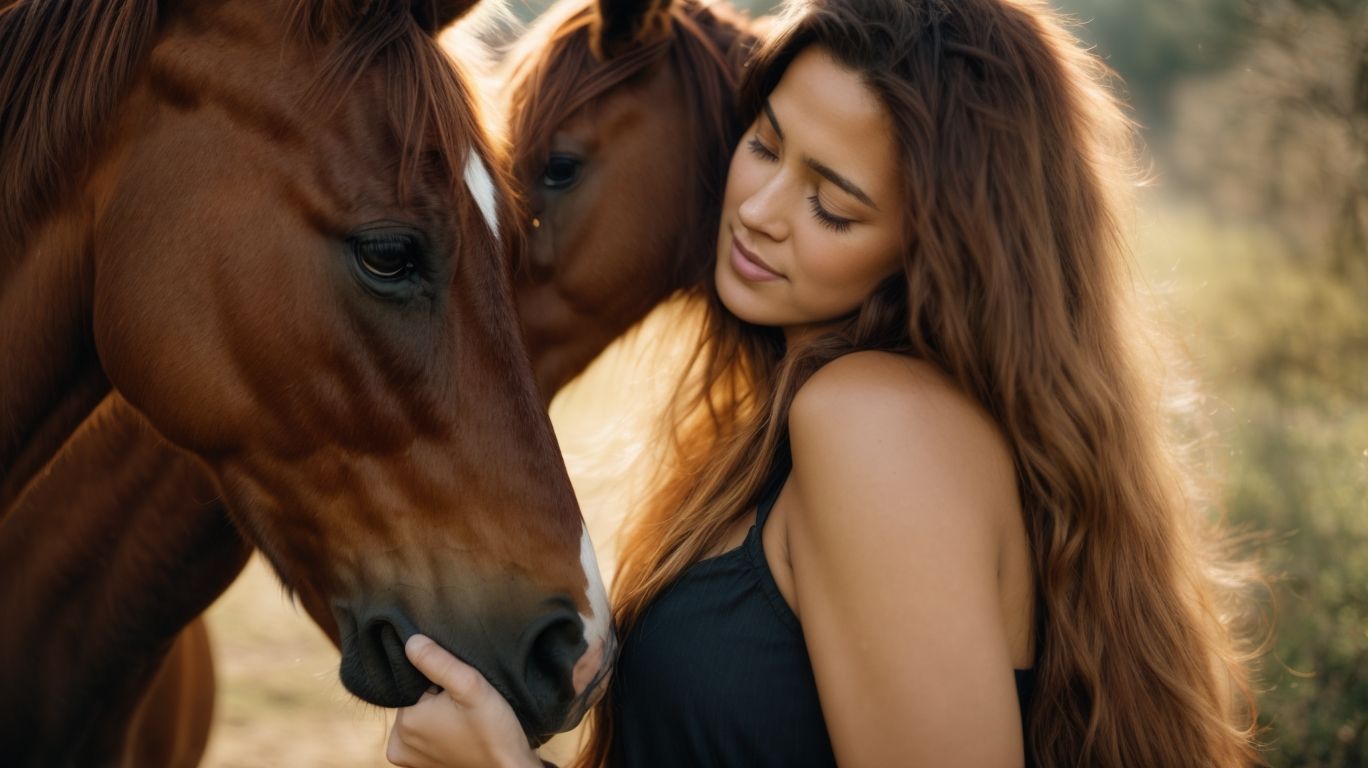Horses are magnificent animals known for their unique behaviors and social dynamics. However, they can also experience issues such as separation anxiety, which can significantly impact their well-being and behavior. Understanding horse behavior and knowing how to manage separation anxiety are crucial for horse owners and handlers.
Separation anxiety in horses is a state of distress and agitation that occurs when horses are separated from their herd mates or familiar environments. It is important to know the causes of separation anxiety, which can vary from individual to individual.
Recognizing the signs and symptoms of separation anxiety is essential for early detection and intervention. Horses with separation anxiety may exhibit behaviors such as excessive whinnying, pacing, pawing, sweating, and even attempting to escape or harm themselves.
To manage separation anxiety, various strategies can be employed. Gradual desensitization and counterconditioning techniques can help horses become more comfortable with separation. Providing a companion animal can also provide comfort and reduce anxiety in some cases. Building trust and bonding with the horse, as well as providing environmental enrichment and maintaining a consistent routine, are also important aspects of management.
In addition to behavioral management, training exercises can be beneficial for horses with separation anxiety. Groundwork exercises and riding exercises can help build confidence and redirect the horse’s focus.
In some cases, seeking professional help from a qualified equine behaviorist or trainer may be necessary to address severe or persistent separation anxiety in horses. They can provide specialized guidance and assistance tailored to the specific needs of the horse.
Prevention is always better than cure, and steps can be taken to minimize the risk of separation anxiety in horses. This can include introducing young horses to different environments and gradually exposing them to separation from their herd as part of their early training and socialization process.
By understanding horse behavior and implementing effective management techniques, horse owners and handlers can help equine companions cope with separation anxiety and ensure their overall well-being and happiness.
Key takeaways:
- Understanding Separation Anxiety: Separation anxiety in horses is a distressing behavioral issue that can cause physical and emotional stress. It is important for horse owners to recognize and address this condition to ensure the well-being of their horses.
- Managing Separation Anxiety: Gradual desensitization and counterconditioning, providing a companion animal, building trust and bonding, and environmental enrichment can help manage separation anxiety in horses effectively.
- Training and Professional Help: Groundwork and riding exercises can aid in reducing separation anxiety. In severe cases, seeking assistance from a professional equine behaviorist or trainer can provide valuable guidance for dealing with this issue.
Understanding Horse Behavior
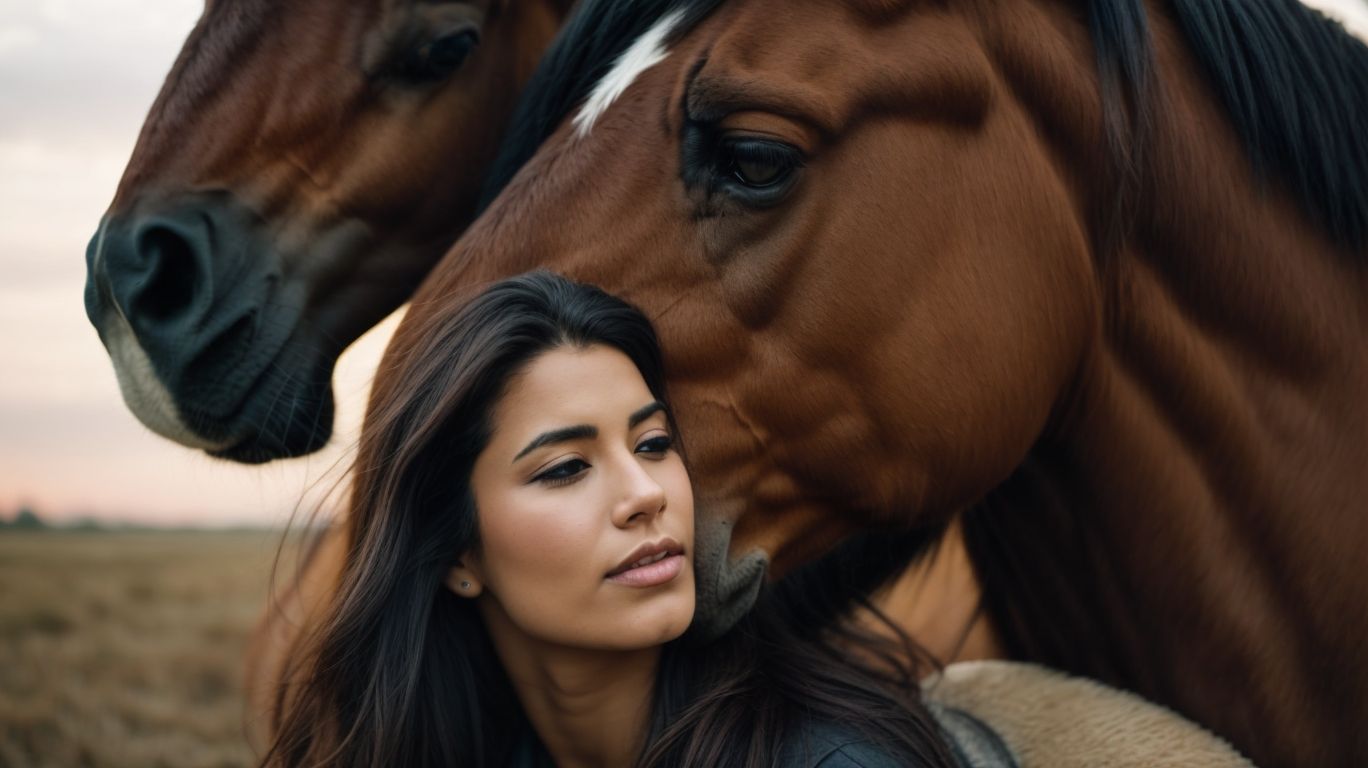
Photo Credits: Www.Horsespeakeducation.Com by Charles Adams
Understanding horse behavior is crucial for effective management and training. To ensure the well-being of horses, it is essential to comprehend their natural instincts and herd dynamics. One must be able to interpret their body language and vocalizations in order to comprehend their needs and emotions accurately. Through a thorough comprehension of horse behavior, a secure and comfortable environment can be provided for these magnificent creatures. By facilitating proper social interaction, mental stimulation, and adhering to a consistent routine, issues such as separation anxiety can be minimized. Interestingly, horses can develop profound connections with their human handlers, akin to the bonds they form within their own herd.
What is Separation Anxiety in Horses?
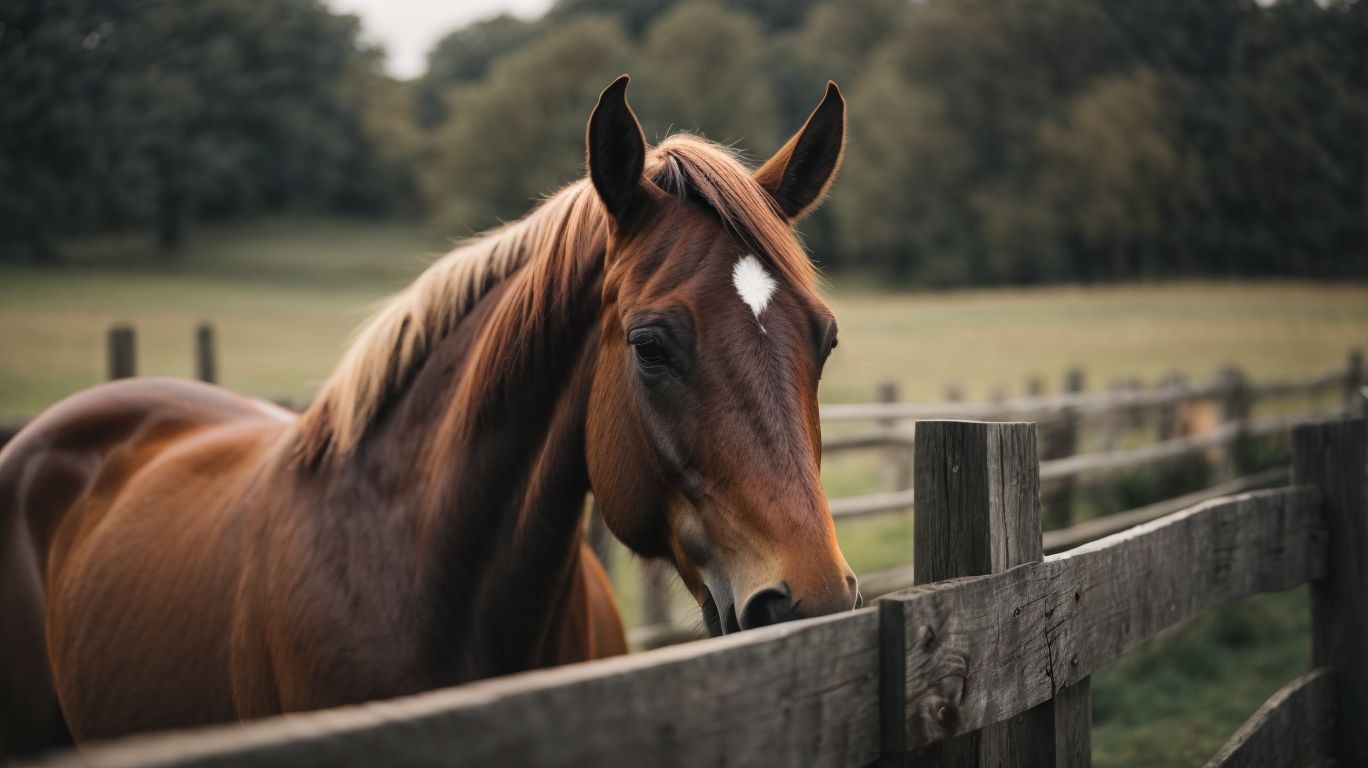
Photo Credits: Www.Horsespeakeducation.Com by Elijah Lopez
Separation anxiety in horses, also known as “What is Separation Anxiety in Horses?“, refers to a condition where horses become distressed or anxious when separated from their companions. Horses, being herd animals, rely on the herd for their safety and security. When horses are separated, they may exhibit behaviors such as calling out, pacing, or attempting to escape. Managing separation anxiety in horses is essential to ensure their well-being and prevent potential injuries. Some suggestions for managing separation anxiety include gradually increasing separation times, providing distractions, and implementing positive reinforcement techniques to create a sense of security for the horse.
What Causes Separation Anxiety in Horses?
What Causes Separation Anxiety in Horses?
Separation anxiety in horses can be caused by various factors, including abrupt changes in their environment or daily routine, lack of social interaction, or previous traumatic experiences. Horses are social animals, and when they are separated from their herd or a trusted companion, they can experience stress and anxiety. Understanding the causes of separation anxiety is crucial in order to effectively manage and prevent it. By providing a companion animal, gradually desensitizing and counterconditioning the horse, and building trust and bonding, owners can help alleviate separation anxiety in their horses.
How to Identify Separation Anxiety in Horses?
To learn how to identify separation anxiety in horses, it is important to pay attention to certain signs and behaviors. These indicators include excessive whinnying, pacing, sweating, and attempts to escape or reunite with the herd. It is also worth noting that horses with separation anxiety may display signs of stress, such as weight loss or ulcers. To confirm the presence of separation anxiety, it is helpful to consistently observe these behaviors in various situations.
Let’s consider the example of Sarah, a horse owner, who noticed that her horse, Bella, would become highly agitated whenever she attempted to leave her alone in the pasture. Bella would start pacing, whinnying, and even attempt to jump over the fence to join the other horses. Recognizing these signs, Sarah sought the expertise of a horse behavior professional who confirmed that Bella was indeed experiencing separation anxiety. With the guidance of this professional, Sarah implemented specific training exercises and provided companionship to assist Bella in overcoming her anxiety and gradually becoming more comfortable in solitary settings.
Managing Separation Anxiety in Horses
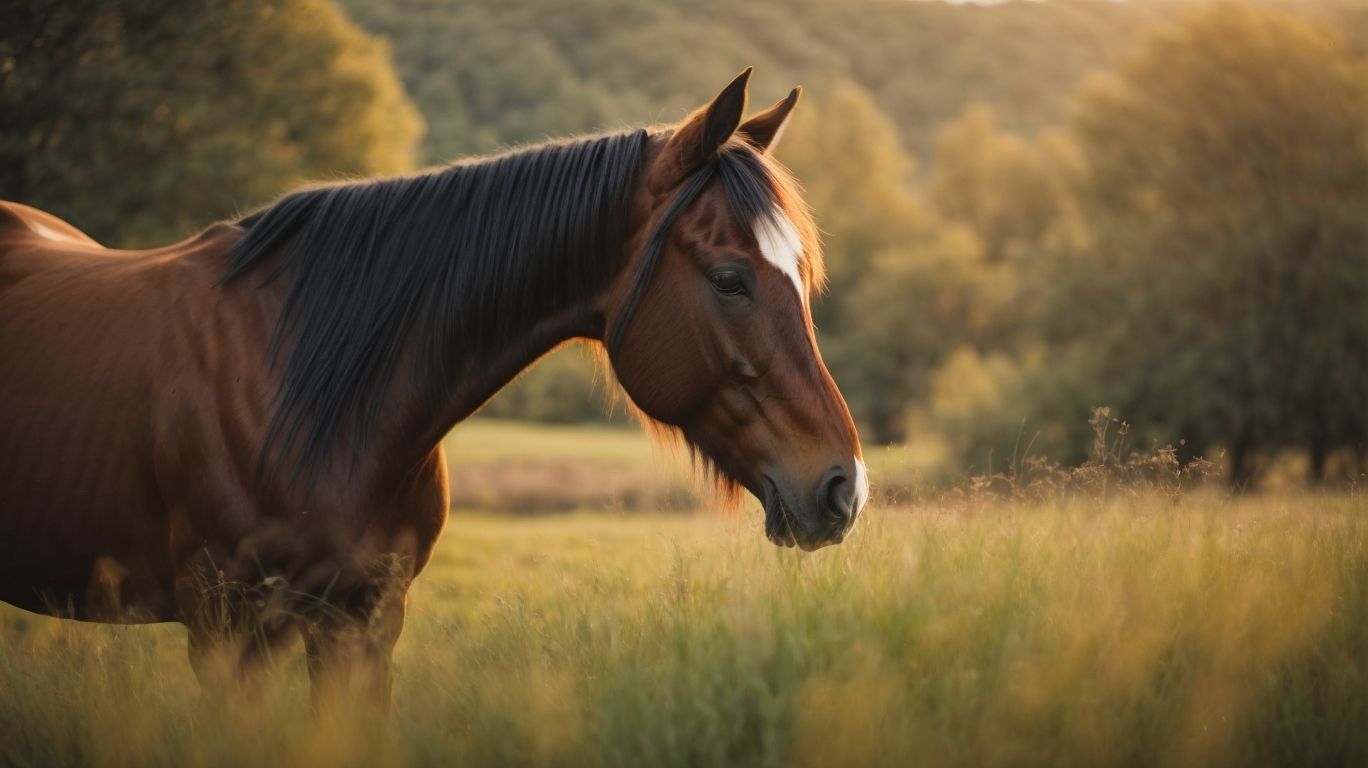
Photo Credits: Www.Horsespeakeducation.Com by Roy Lopez
Managing separation anxiety in horses can be a challenging task, but with the right strategies, it can become a journey of empowerment and understanding. In this section, we will explore various approaches to address this issue, including gradual desensitization and counterconditioning techniques. We’ll also discover how providing a companion animal, building trust and bonding, and creating an enriched and consistent environment can contribute to overcoming separation anxiety in horses. Get ready to delve into practical solutions that will help your equine friends feel more secure and content when apart from their herd.
Gradual Desensitization and Counterconditioning
Gradual desensitization and counterconditioning are effective techniques for managing separation anxiety in horses.
- Start with a calm and safe environment to create a positive association with separation.
- Expose the horse to mild triggers of separation anxiety, such as moving out of sight briefly, and reward calm behavior.
- Gradually increase the intensity and duration of the triggers, ensuring the horse remains relaxed throughout the process.
- Use positive reinforcement, like treats and praise, to reinforce relaxed behavior.
- Consistently repeat the process, gradually exposing the horse to more challenging situations.
Fun Fact: Horses are highly social animals and can form strong bonds with their herd mates, making separation anxiety a common issue.
Providing a Companion Animal
Providing a companion animal can be a beneficial strategy for managing separation anxiety in horses.
- A companion animal, such as another horse or even a goat, can provide comfort and reduce feelings of isolation when the horse is separated from its herd or human companions.
- The presence of a companion animal can help distract the anxious horse and redirect its attention away from its anxiety triggers.
- Companion animals can also serve as role models, promoting positive behavior and reducing the horse’s anxiety through socialization.
Not only does providing a companion animal help alleviate separation anxiety, but it also contributes to the overall well-being and happiness of the horse.
Building Trust and Bonding
Establishing trust and bonding with your horse is of utmost importance in managing separation anxiety. Here are some effective ways to build a strong connection and foster trust:
- Consistent interaction: Spend dedicated time with your horse daily, engaging in grooming, ground exercises, or simply being present.
- Positive reinforcement: Reward your horse with treats, pats, and verbal praise for exhibiting calm and obedient behavior.
- Communication: Develop clear communication cues through body language and voice commands to establish mutual understanding.
- Patience and consistency: Gradually build trust by consistently displaying calm and predictable behavior, ensuring your horse feels secure in your presence.
Pro-tip: Incorporate playful and interactive activities, such as clicker training or liberty work, to enhance the bond with your horse and make training a more enjoyable experience for both of you.
Environmental Enrichment and Consistency
Environmental enrichment and consistency are essential elements in managing separation anxiety in horses. To effectively incorporate these factors into the horse’s environment, consider the following strategies:
- Facilitate ample turnout time in a spacious pasture with other compatible horses to promote social interaction and minimize feelings of isolation.
- Establish a consistent daily routine, including regular feeding and exercise schedules, to provide a sense of stability and predictability for the horse.
- Offer mental stimulation by introducing toys such as treat balls or hanging feeders to keep the horse engaged and occupied.
- Promote a varied environment by introducing new obstacles or altering the layout of the paddock, preventing boredom and fostering curiosity.
- Create a comfortable and stress-free living environment by ensuring clean and well-ventilated stables, supplying adequate bedding, and minimizing sudden changes in temperature or noise levels.
Training Exercises for Horses with Separation Anxiety
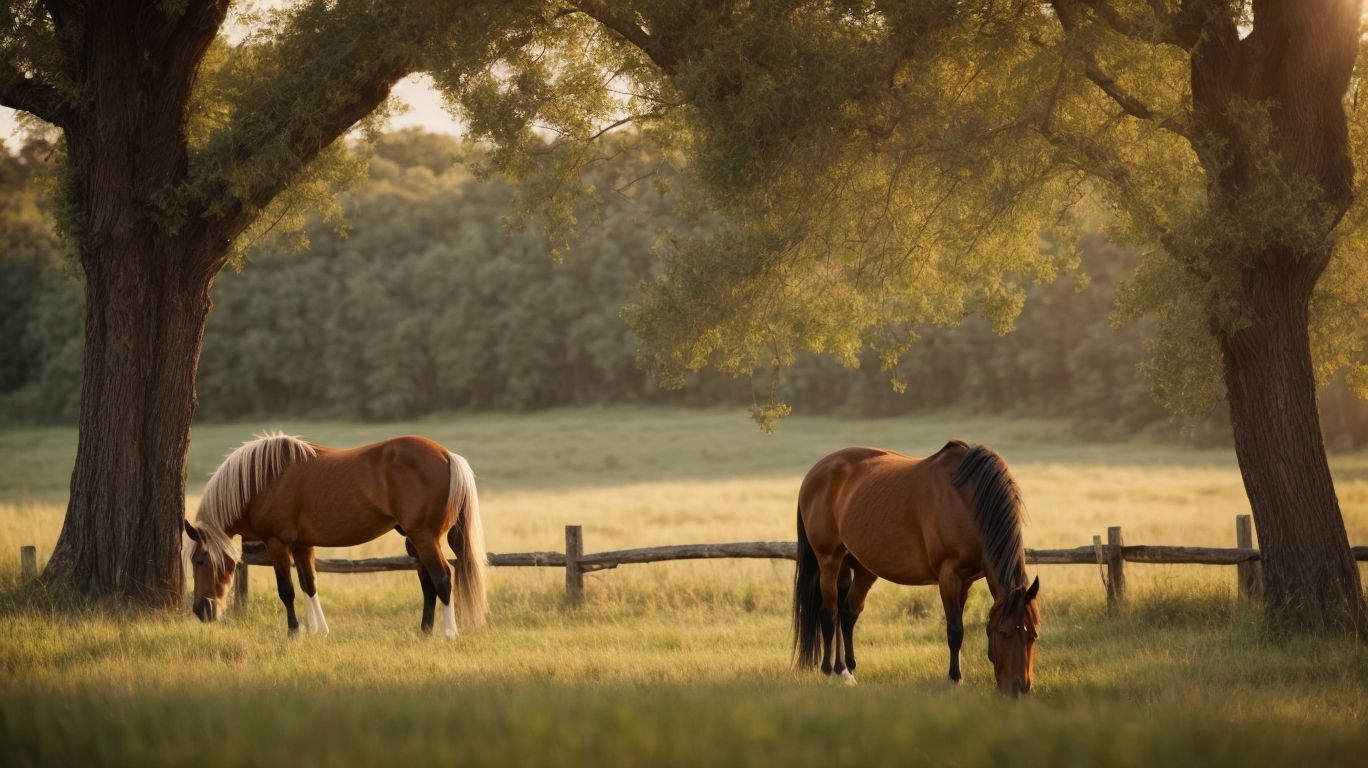
Photo Credits: Www.Horsespeakeducation.Com by Christopher Harris
If your horse experiences separation anxiety, don’t despair! In this section, we will explore training exercises specifically designed to help horses overcome this issue. We’ll dive into effective groundwork exercises and riding techniques that can make a positive difference in your horse’s behavior. So saddle up, because we’re about to embark on a journey of training strategies that will help you and your equine companion overcome separation anxiety for good!
Groundwork Exercises
Groundwork exercises, such as leading, halting, and backing up, are crucial when it comes to managing separation anxiety in horses. These exercises play a significant role in building the horse’s confidence and trust, thereby reducing their anxiety levels when they are separated from other horses or familiar environments. To effectively incorporate these exercises into your routine, follow these steps:
- Begin with basic obedience exercises like leading, halting, and backing up.
- Introduce ground tying to teach the horse how to stand calmly and patiently without being tied.
- Engage in yielding exercises to enhance the horse’s responsiveness to your cues.
- Work on desensitization exercises to help the horse become more at ease with various objects, sounds, and sensations.
- Gradually escalate the level of difficulty by incorporating obstacles or challenging environments.
- Make sure to reinforce positive behaviors with rewards, praise, and breaks.
- Consistency is key – engage in these exercises regularly to reinforce the horse’s training and foster their confidence.
By integrating these groundwork exercises into your routine, you can assist your horse in developing the necessary skills and confidence to overcome separation anxiety.
Riding Exercises
Riding exercises are an effective way to help horses with separation anxiety. These exercises provide mental and physical stimulation, helping them to feel more comfortable and confident when separated from their companion. Here are some suggested riding exercises:
- Start with groundwork exercises to establish trust and respect before mounting.
- Practice riding exercises in a controlled environment, gradually increasing the difficulty level.
- Introduce obstacles, such as poles or cones, to challenge the horse’s focus and attention during riding exercises.
- Incorporate transitions, changes of direction, and lateral movements to keep the horse engaged while doing riding exercises.
- Vary the riding exercises routine frequently to prevent boredom and anticipation.
By incorporating these riding exercises into your training routine, you can help your horse become more relaxed and confident when separated from their companion. Remember to always prioritize safety and listen to your horse’s cues during the riding exercises.
Professional Help for Horses with Separation Anxiety
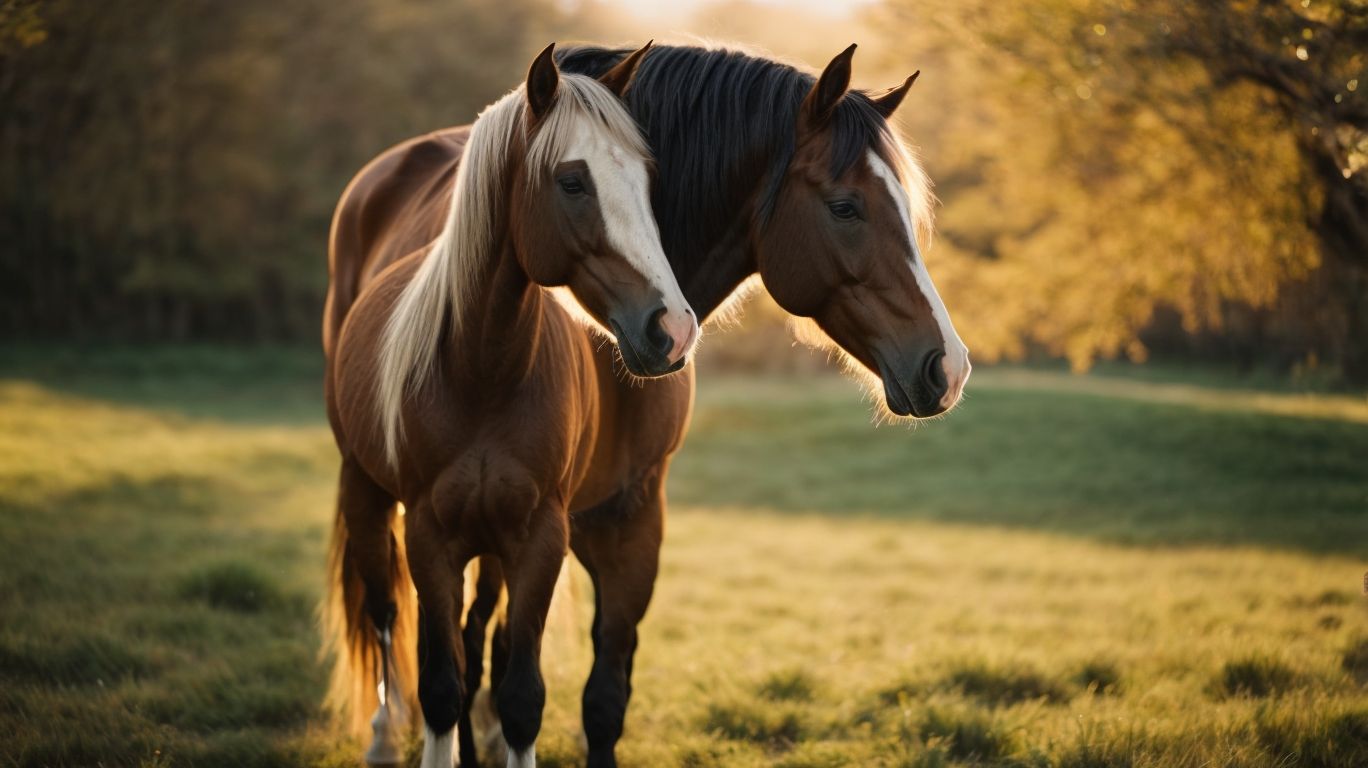
Photo Credits: Www.Horsespeakeducation.Com by Mason Hill
Seeking professional help is crucial when dealing with horses who suffer from separation anxiety. Professional Help for Horses with Separation Anxiety A trained equine behaviorist or a qualified horse trainer can provide expert guidance and support. Here are some reasons why professional help is essential:
- Expert diagnosis: A professional will accurately assess the horse’s behavior and determine if it is separation anxiety or another issue.
- Tailored treatment plan: A trained specialist will develop a personalized plan based on the horse’s specific needs and circumstances.
- Behavior modification techniques: Professionals can implement effective techniques to gradually desensitize the horse to separation and reduce anxiety.
- Monitor progress: They will regularly assess the horse’s progress and make adjustments to the treatment plan as needed.
Remember, seeking professional help is crucial for horses with separation anxiety. With the guidance of a qualified equine behaviorist or trainer, you can give your horse the best chance at overcoming this challenge and lead a happier, more balanced life.
Preventing Separation Anxiety in Horses
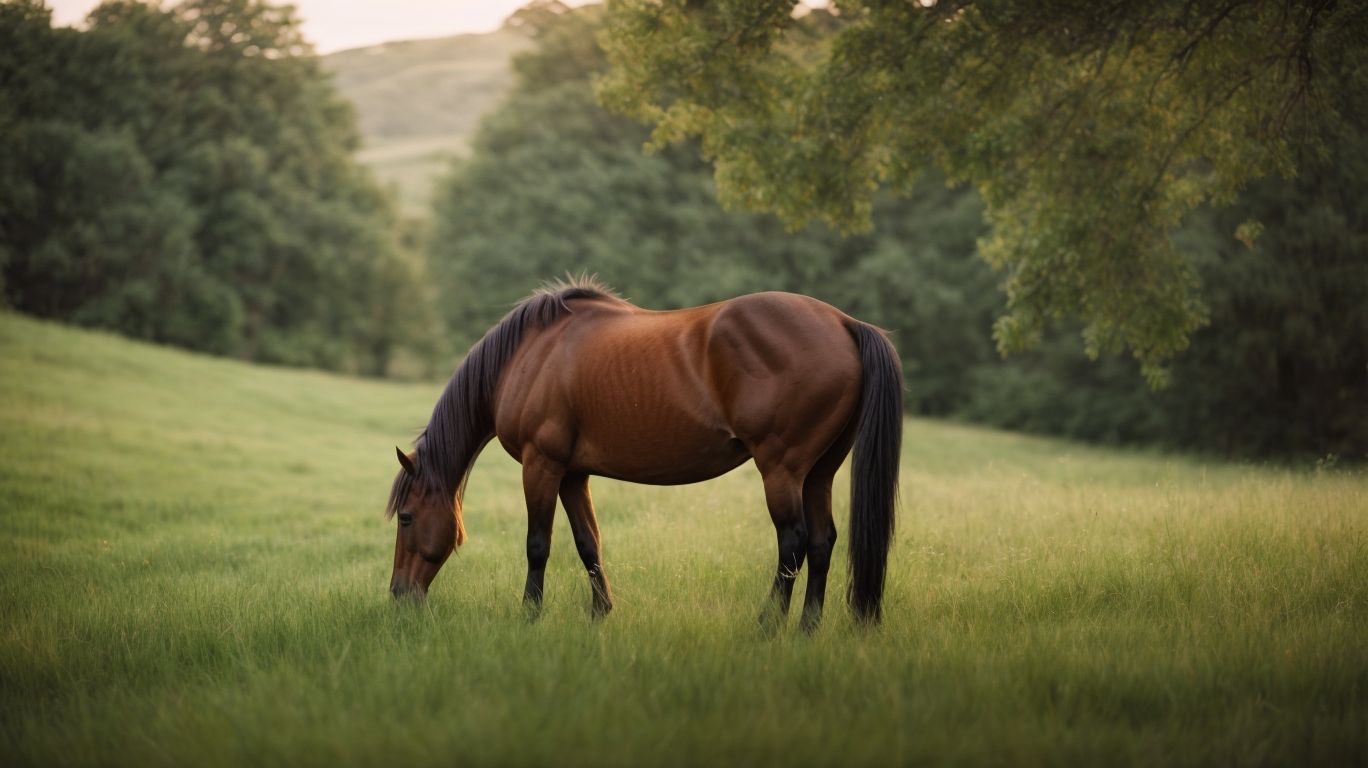
Photo Credits: Www.Horsespeakeducation.Com by Raymond Flores
Preventing Separation Anxiety in Horses is of utmost importance for maintaining their overall well-being. To accomplish this, here are some effective steps to ensure their emotional stability:
- Gradual separation: Initiate the process by gradually separating horses for short periods of time, and then slowly extending the duration of their separation.
- Companion animals: Introduce companion animals such as goats or ponies to provide much-needed companionship when horses are separated from their herdmates.
- Enrichment activities: Offer toys, treats, and interactive objects to engage horses, keeping them occupied and reducing their stress levels.
- Training and desensitization: Employ positive reinforcement training techniques and expose horses to varied environments to enhance their comfort with being alone.
- Proper socialization: Expose horses to different horses and diverse environments to develop their confidence and independence.
By diligently following these steps, you can effectively prevent separation anxiety in horses and ensure their mental well-being.
Some Facts About Horse Behavior Management – Coping with Separation Anxiety:
- ✅ Separation anxiety is a common condition in horses that occurs when bonded horses are separated and unable to see or touch each other. (Source: Our Team)
- ✅ Anxiety, fear, and stress are common signs of separation anxiety in horses, including vocalization, shaking or trembling, increased heart rate or sweating, unwillingness to eat or drink, rearing, kicking out, bucking, spooking or bolting, pacing or fence walking, weaving and stall walking, and pawing. (Source: Our Team)
- ✅ Simple exercises in a safe fenced area near their companions can help prevent and treat separation anxiety in horses. These exercises should start with basic tasks performed close by and within sight of their companions, gradually increasing in length and complexity. (Source: Our Team)
- ✅ It is important to reward horses with something positive, such as a treat or groom, after each session of separation anxiety management exercises. (Source: Our Team)
- ✅ Pairing anxious horses with other animal companions, such as smaller ponies, goats, donkeys, chickens, or dogs, has been successful in providing comfort to the horse and reducing separation anxiety. (Source: Our Team)
Frequently Asked Questions
What is separation anxiety in horses?
Separation anxiety is a condition in horses that occurs when bonded horses are separated and unable to see or touch each other. This can lead to feelings of fear, anxiety, and stress.
What are the signs of separation anxiety in horses?
Signs of separation anxiety in horses include vocalization, shaking or trembling, increased heart rate or sweating, unwillingness to eat or drink, rearing, kicking out, bucking, spooking or bolting, pacing or fence walking, weaving and stall walking, and pawing.
How can horse owners prevent and treat separation anxiety?
Horse owners can prevent and treat separation anxiety by trying simple exercises in a safe fenced area near their companions. Starting with basic exercises performed close by and within sight of their companions, owners can gradually increase the length and complexity of tasks. It is important to reward the horse with something positive, like a treat or groom, after each session to build confidence about being separated from companions.
Can pairing an anxious horse with other animal companions help?
Yes, pairing anxious horses with other animal companions, such as smaller ponies, goats, donkeys, chickens, or dogs, can provide comfort to the horse and help alleviate separation anxiety.
How can the focus of a horse with separation anxiety be changed?
To change the focus of a horse with separation anxiety, it is recommended to work in a large enclosed area and use a stick with a flag to attract the horse’s attention. The horse is turned loose while its buddies are placed far enough away for it to glimpse or hear them. The goal is to capture the horse’s attention with the flag, even if it’s just a flick of the ear, and then stop and stand quietly to acknowledge the change in focus.
What are the benefits of social attachments among horses?
Horses benefit from social attachments and equine bonds as it provides companionship and prevents them from feeling lonely when their owners are not around. However, strong friendships between horses can sometimes lead to negative consequences, such as separation anxiety.
